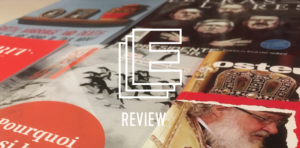
Eurozine
Different as they are, Israel and the United States suffer from similar forms of political discord, social fracture, cultural dislocation, and ideological distortion, argues Hoover’s Peter Berkowitz. Their struggles to maintain cohesion and order, moreover, are more than their own. They illuminate contemporary liberal democracy’s discontents and underscore the need to renew appreciation throughout the West of the principles of freedom and democracy, he writes for Mosaic magazine.
Gadi Taub’s book, The Rise of Antidemocratic Liberalism: Israel, the United States, and the West, (not yet available in English), contends that the acrimonious schism between the progressive elite and ordinary citizens stems from sociological circumstances that progressive elites exacerbate by promulgating ill-conceived political ideas and public policies. At stake, argues Taub, is the vitality of free and democratic nation-states, Berkowitz observes, concluding….
Liberal democracy needs a party that concentrates on conserving what is best in inherited beliefs and practices. It also needs a party that, in the name of standards all human beings can share, specializes in making progress in reforming existing institutions. And, particularly urgent now, liberal democracy needs both parties to appreciate the other’s vital contribution. RTWT
While Nietzsche’s antidemocratic liberalism was opposed to populism and egalitarianism, he was also an enthusiastic supporter of the struggle for liberty, notes Béla Egyed. A Nietzschean politics is less a critique of political events so much as a diagnosis of the forces and tendencies driving them – and therein lies its liberalism, he writes for Eurozine, a partner of the National Endowment for Democracy (NED).
My new book GLOBAL ELITES AND NATIONAL CITIZENS (pic bellow) is, unfortunately, not available in English – yet – but its seeds were sawn in this English language essay, in Quillette. My thanks to @paulinaneuding and @clairlemon for making it possible. https://t.co/M0RAgs4nDw
— Gadi Taub (@GadiTaub1) November 16, 2020







